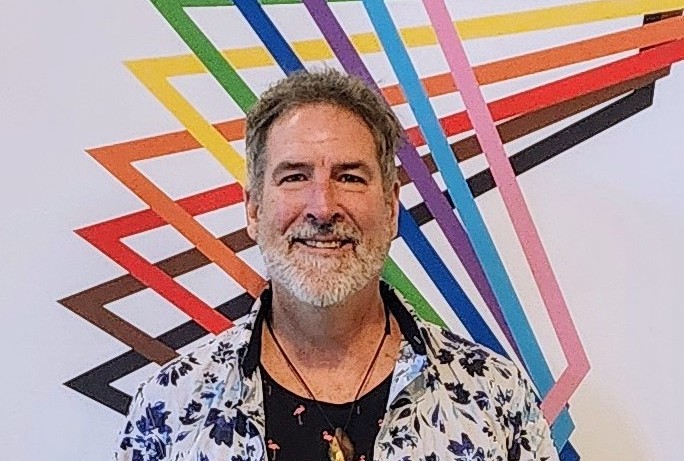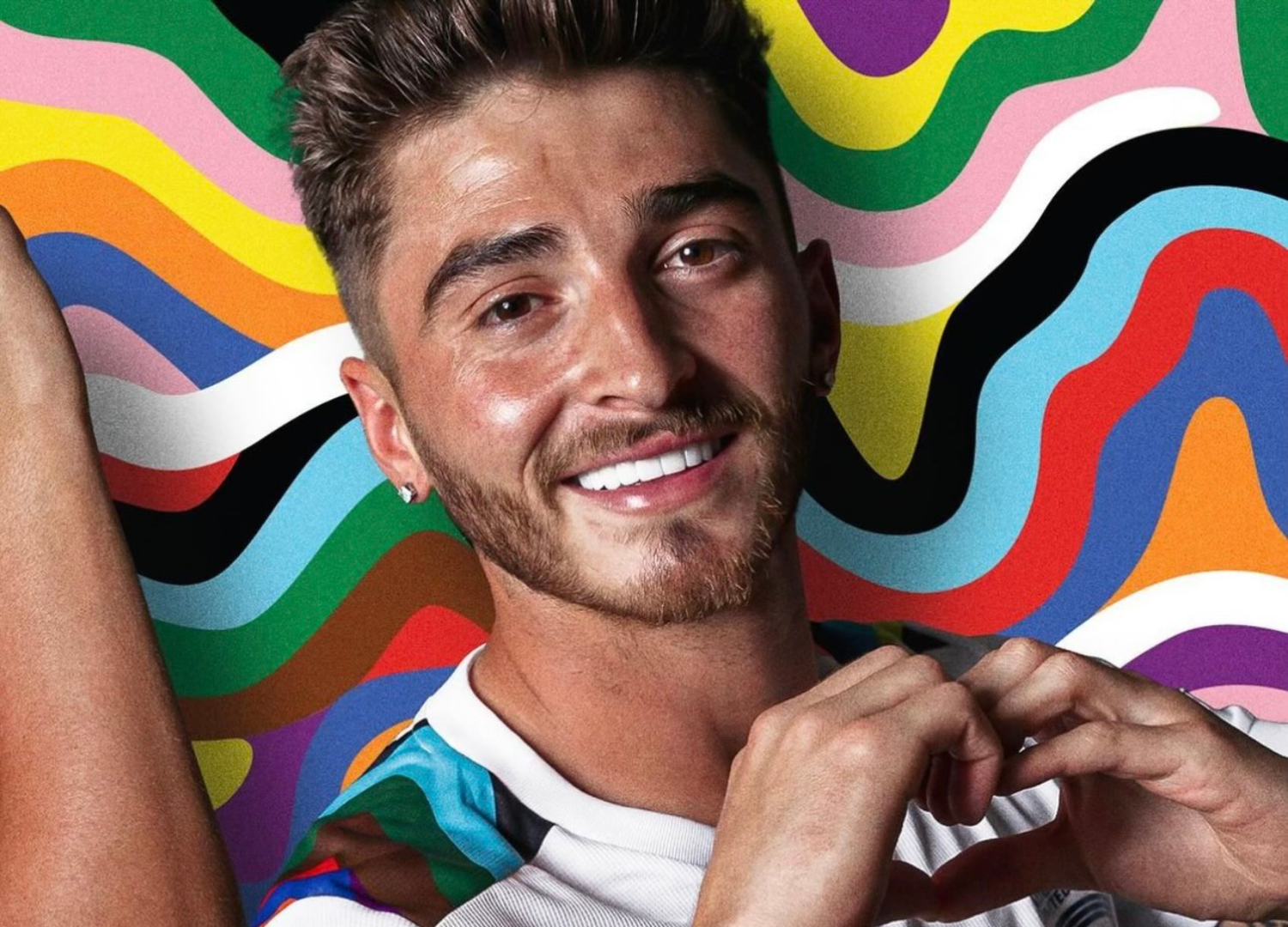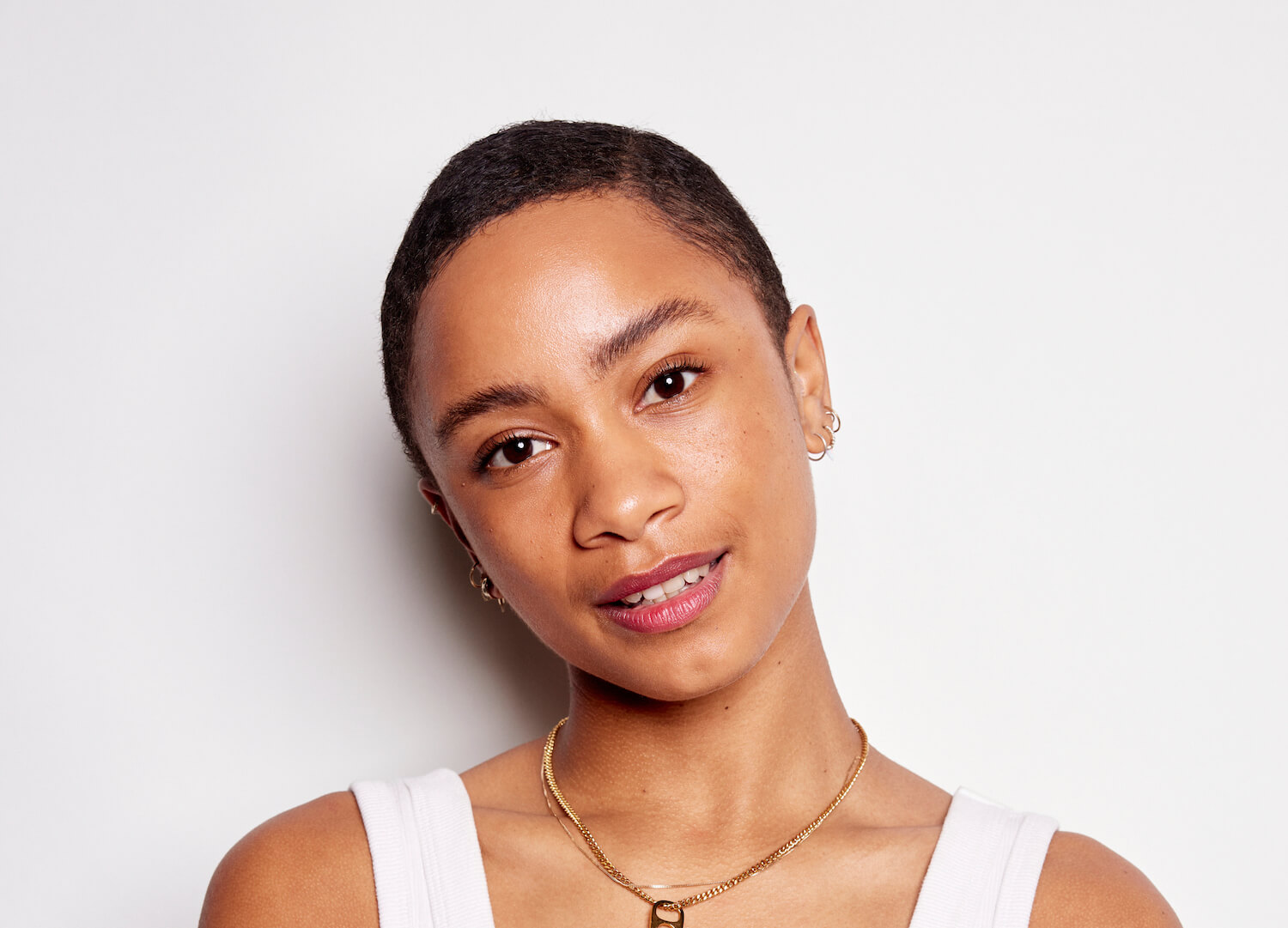
Paul Byrne-Moroney
April 19, 2024
To intersex young people: You have the right to make decisions about your life and body, without pressure and coercion from others. You are part of a wonderful and diverse intersex community that is here and available to support you, if needed. But equally, you have the strength to live a happy, successful life.
Tell us a little about yourself! Who you are, what you love to do, and your work in the community.
I’m Paul, a 58 year old cisgender male, heterosexual, intersex person. When I was 28 years old I learned that my sex chromosomes are XXY, that I am infertile, that my body doesn’t produce normal levels of testosterone and that for the rest of my life I would be on Hormone Replacement Therapy. With that I was sent on my way.
At age 50, I heard the word “intersex” for that first time and, shortly afterwards, that I am intersex. Since learning that I’m intersex, I’ve connected with other intersex people, and I’ve become involved in advocacy and peer support. I’m currently the co-Victorian Rep for Intersex Peer Support Australia, the Victoria/Australian Ambassador for the International ChromoDiversity Foundation, and a member of the Victorian Government Intersex Expert Advisory Group.
I live in Melbourne and my girlfriend lives in Gippsland, so I spend lots of time visiting that region of Victoria. I enjoy travel (I’m actually conducting this interview en route to Bangkok!), writing, bushwalking, markets, festivals, film and public speaking.
Why are days against discrimination – like IDAHOBIT – still important?
Discrimination against members of LGBTQIA+ communities remains a concern throughout society, including in countries like Australia. People may think Australia is a beacon of light and a positive example to other countries due to what we have achieved, such as marriage equality, but it’s clear that discrimination still exists.
You need only look at the outrageous attitudes exhibited towards drag story time programs in libraries, and the persistence of archaic conversion practices in religious settings, to see that there’s a lot of work still to be done, and a long way to go for the LGBTQIA+ community.
The only way this work will ever be achieved is if we continue to raise awareness and fight for change – socially, culturally, and politically.

But what about the “I” in LGBTQIA+, the Intersex community?
Intersex people still face discrimination throughout their lives due to misunderstandings and misinformation about us. Discrimination can occur in many ways and many places.
Some discrimination may be in the form of human rights abuses, while other discrimination may relate to disability, or medical treatment. This includes unnecessary surgeries on our children, poor treatment in the workplace, a lack of inclusion in sporting and social environments, or a lack of consultation about policies and strategies that are intended to support our community, or inadvertently impact us.
Importantly, the intersex community not only faces discrimination during our lifetimes, but we are also subject to discrimination before we are born. Intersex embryos are systematically de-selected during various stages of pregnancy – practices that are akin to eugenics.
Additionally, many intersex couples cannot afford to parent children – members of the community that require MICRO-TESE to retrieve viable sperm from testes for IVF face discrimination, because the procedure is classed as “Cosmetic-Elective Surgery” rather than “Reproductive Health” (thus does not attract a rebate under the MBS).
What does impactful intersex allyship and inclusion look like to you?
It means social, medical, educational, and vocational settings that are culturally safe environments for intersex people to live, work, study and engage. Where staff and people know what “intersex” means, and don’t need to be educated every time an intersex person engages.
It also means communities where positive life outcomes occur for our community, rather than continued trauma and frustration from not being heard, understood, respected or valued.
Impactful allyship to the LGBTQIA+ community – and specifically the intersex community – is genuine, considered, consultative and never tokenistic.
Can you tell us about an instance when someone was an effective ally to you, and how it made you feel?
Sadly, these events are few and far between, and I really need to rack my brain to think of one.
The most recent occasion that comes to mind was when JOY94.9 supported me to undertake the JOY Media Radio Training with a scholarship. JOY then accepted my pitch to launch the first ever Australian live-to-air radio show created by the intersex community, about the intersex community, but aimed at being a show for everyone.
This made me feel valued for the first time in many years. Further to that, the ongoing support, friendship, and guidance has demonstrated that the support I received was not tokenistic and in fact, exemplifies “effective and impactful intersex allyship”.
What advice would you give to someone just starting out in their LGBTQIA+ allyship journey?
Ask, don’t assume. Respect, educate yourself, reflect, apply and then do it all again! What you think you know may not apply to everyone (and probably doesn’t!).
If you’re unsure of something, find out. Start with Google, then seek out localised organisations – and where possible, consult directly with people with lived experience.
What would your top tip be for someone who wants to be a better ally to the intersex community?
Never ask what someone’s intersex variations are, what their sex characteristics are like and what challenges they may have experienced in life. These things should be volunteered by the person before they are discussed. You can ask, “do you feel comfortable discussing these things”, but you must be sensitive to the potential that the person has experienced trauma, and many subjects might be triggering.
My other piece of advice would be not to assume all LGBTQIA+ people (including the intersex community) identify as “queer”. It’s worth understanding that the phrases “coming out” and “identify as” apply to some LGBTQIA+ communities, but not to all.
Just as our society is normalising asking someone’s pronouns, and not assuming someone’s gender, the same should apply to other identifiers or aspects of someone’s life. Being intersex isn’t a third biological sex category, or an identity, or a gender identity, or a sexuality. Being intersex doesn’t imply someone’s identity, gender, or sexuality.
That said, intersex people are as likely to be gender and sexually diverse as the general community, and so an intersex person might identify in this way. It’s just that these concepts of self or identity should not be confused with being intersex, because we are born intersex with physical, hormonal and / or chromosomal variations in sex characteristics.
Do you have a message for intersex young people out there?
You don’t need to be fixed – you are born with naturally occurring variations in sex characteristics. You have the right to make decisions about your life and body, without pressure and coercion from others. You are part of a wonderful and diverse intersex community that is here and available to support you, if needed. But equally, you have the strength to live a happy, successful life.
Recently I was asked if I had a message for my eight year old self, the age that I became aware that I was physically different to other boys, including my brothers. Now I offer the same message to young intersex people out there:
It is ok to be different, you were born to make a difference, your vulnerability is your strength, and you have nothing to fear.
-------
Read more People & Stories from the LGBTQIA+ community
Related Articles

Australian soccer player Josh Cavallo shares a powerful message for LGBTQIA+ youth, and his vision for an inclusive Australia

Founder of the Rainbow Shoelace Project, Abbie Jane, shares her top tip for those starting their allyship journey!

Comedian Aurelia St Clair on why days like IDAHOBIT are still important, even in 2024 – and how to begin your queer education.

Intersex advocate Paul Byrne-Moroney on what real, tangible intersex allyship looks like, and his message to intersex young people of today.